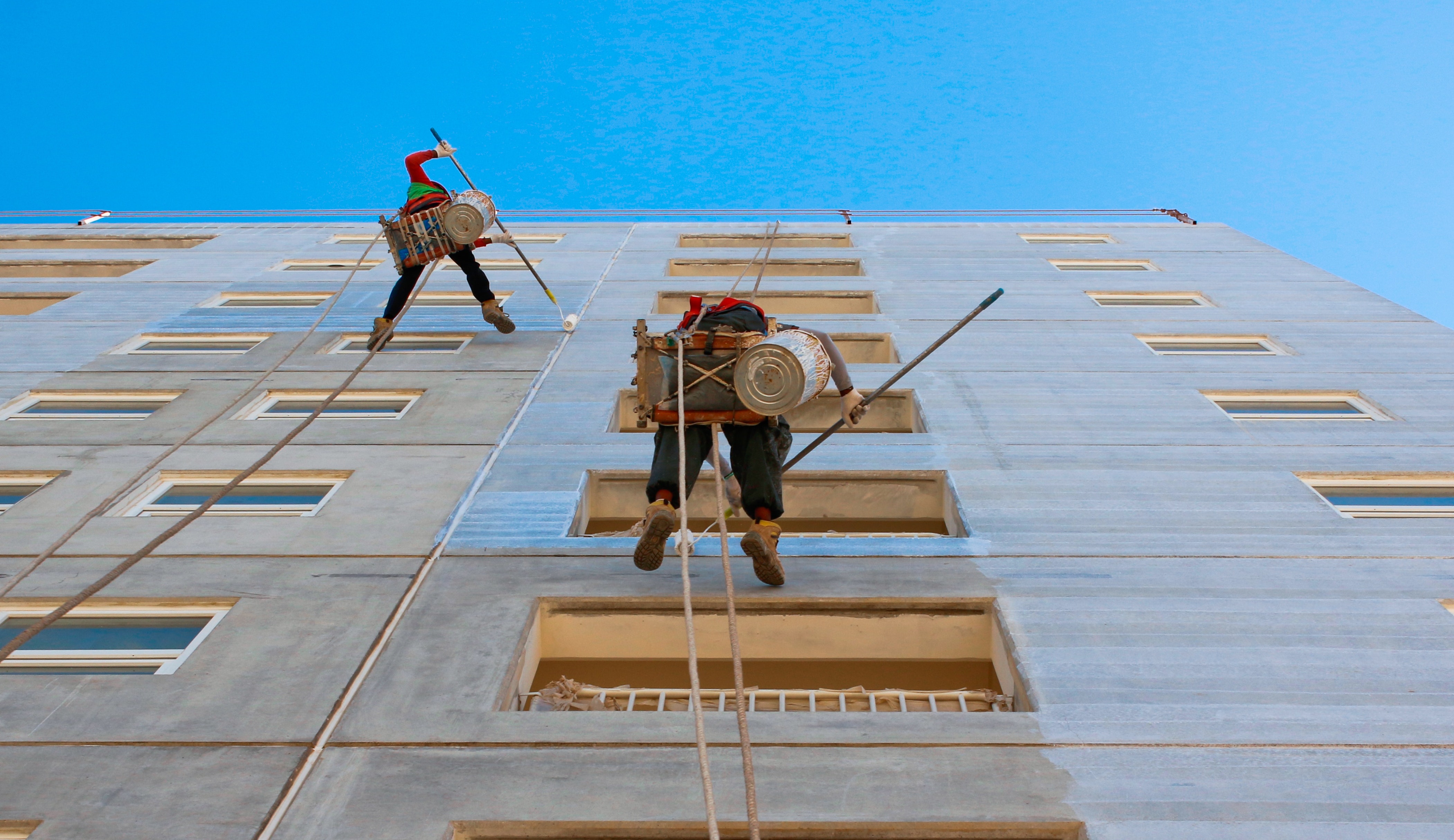Do not be afraid

Nehemiah (meaning Comforted by the Lord) was cupbearer to King Artejerjes, a privileged and meticulous position in the kingdom. His task was to taste the king's food and verify that it was not contaminated with poison. Rather than trying food, his main objective was to ensure the safety of his master. If Nehemiah failed to taste a meal, his king could be poisoned, although if it consumed and contained poison, the cupbearer would die immediately and the king would be safe. Imagine the confidence that the king had in Nehemiah to grant him such a position and trust that what he was eating was not going to cause death.
The people of Israel, where Nehemiah belonged, were scattered and dominated by the Persians who had the Middle East under their feet. One day his brother Hanani arrived with news to Nehemiah about his people:
They said to me, “Those who survived the exile and are back in the province are in great trouble and disgrace. The wall of Jerusalem is broken down, and its gates have been burned with fire.” Nehemiah 1:3
Upon hearing this news, Nehemiah cried bitterly because his country had been destroyed and the walls that protected the town from the invaders in ruins. So much was the impact of this news that he was several days of mourning for the pain he felt. It hurt him to see his people in misery, unprotected, unprotected and exposed to the invaders.
Upon hearing this news, Nehemiah cried bitterly because his country had been destroyed and the walls that protected the town from the invaders in ruins. So much was the impact of this news that he was several days of mourning for the pain he felt. It hurt him to see his people in misery, unprotected, unprotected and exposed to the invaders. After praying to God, he went before the king to follow his obligations. The king, seeing the sadness in Nehemiah's eyes, asked him the reason for his affliction, an opportunity that Nehemiah had to start a conversation:
But I said to the king, “May the king live forever! Why should my face not look sad when the city where my ancestors are buried lies in ruins, and its gates have been destroyed by fire?”
4 The king said to me, “What is it you want?”
Then I prayed to the God of heaven, 5 and I answered the king, “If it pleases the king and if your servant has found favor in his sight, let him send me to the city in Judah where my ancestors are buried so that I can rebuild it.”
6 Then the king, with the queen sitting beside him, asked me, “How long will your journey take, and when will you get back?” It pleased the king to send me; so I set a time.
7 I also said to him, “If it pleases the king, may I have letters to the governors of Trans-Euphrates, so that they will provide me safe-conduct until I arrive in Judah? 8 And may I have a letter to Asaph, keeper of the royal park, so he will give me timber to make beams for the gates of the citadel by the temple and for the city wall and for the residence I will occupy?” And because the gracious hand of my God was on me, the king granted my requests. Nehemiah 2:3-8
What Nehemiah did not know was what awaited him. When he arrived in the city he saw that the whole village was destroyed and weakened, decided to encourage the people to rebuild the walls. It was not an easy task since his enemies did not want him, but he was not afraid, he made three very important decisions that helped him with the framed plan and can help us to face every situation presented in our lives without being afraid.

christian-trail
- He prayed: When Sambalat, Tobias and Guesem, governors of Samaria, Ammon and the Arab lands of Quedar, learned that the walls were being rebuilt, they became indignant and began to mock the hoax they were doing. . They insulted the Jews and threatened to attack Jerusalem while they worked. But Nehemiah knew the intentions of his enemies, so he decided to do something that would stop them, he prayed. His first weapon was not a spear or a sword, much less go out to battle against those who oppressed him, his first weapon was prayer. Nehemiah 4: 4-5 says:
Hear us, our God, for we are despised. Turn their insults back on their own heads. Give them over as plunder in a land of captivity. 5 Do not cover up their guilt or blot out their sins from your sight, for they have thrown insults in the face of the builders.
Prayer is a lethal weapon that no one can destroy, it is the most powerful defense one can have to face enemies. Prayer connects us with the One who has created all that is visible and invisible. Before any fear we may have we must pray, it is the best action we can take, it is free and within our reach. Many times we make decisions without first going to the source of our lives, Jesus, and then we are wrapped in grips that choke us and take away our peace, all because we do not take into account that before acting we must pray.
Prayer is not to change God's plans. It is to trust and rest in His sovereign will. Martin Luther
- He had Faith: The threats to the Jewish people of his neighbors were more constant every day, but the people were always one step ahead of them. There was a moment where the forces were running out and they did not know if they could continue with the reconstruction of the walls, Nehemiah encourages them to have faith and not to faint. We read what Nehemiah said in chapter 4:14:
After I looked things over, I stood up and said to the nobles, the officials and the rest of the people, “Don’t be afraid of them. Remember the Lord, who is great and awesome, and fight for your families, your sons and your daughters, your wives and your homes.”
Nehemiah was clear on where his faith was placed and not only that, but he sought to infect others from whom he had believed. Our lives can become very gray and we wonder why this is happening to us. The prayer is already exhausted because we intercede for what happens to us each day and we keep asking why me? Will God hear my prayers? Before these concerns we can only hope and have faith. Faith consists in being sure that what we do not see will soon be seen, and that sooner or later our prayers will be answered because we trust in God, the owner of gold and silver.
The way to see with faith is to close the eyes of reason.
Benjamin Franklin
- He devised a plan: Prayer and faith is very important, but everything must end with an action, we can not sit and wait for rain to flow from heaven, we must put into practice what we have prayed for and have a plan to execute it. The story of Nehemiah shows us a clear example of the attitude we should take:
15 When our enemies heard that we were aware of their plot and that God had frustrated it, we all returned to the wall, each to our own work.
16 From that day on, half of my men did the work, while the other half were equipped with spears, shields, bows and armor. The officers posted themselves behind all the people of Judah 17 who were building the wall. Those who carried materials did their work with one hand and held a weapon in the other, 18 and each of the builders wore his sword at his side as he worked. But the man who sounded the trumpet stayed with me.
19 Then I said to the nobles, the officials and the rest of the people, “The work is extensive and spread out, and we are widely separated from each other along the wall. 20 Wherever you hear the sound of the trumpet, join us there. Our God will fight for us!”
21 So we continued the work with half the men holding spears, from the first light of dawn till the stars came out. 22 At that time I also said to the people, “Have every man and his helper stay inside Jerusalem at night, so they can serve us as guards by night and as workers by day.” 23 Neither I nor my brothers nor my men nor the guards with me took off our clothes; each had his weapon, even when he went for water.>
We see how Nehemiah devised a plan so that his enemies would not take them by surprise. He prayed to God and had Faith, but that without the action does not cause any effect because both of you must come to an action. A student can not stay at home praying to finish his career, besides praying and having faith, he must strive to pass all the subjects and be able to graduate, so we must be ourselves, strive and act on what we want to happen.
Until they are carried out, the plans are just dreams. Dennis Lehane.

And you are afraid?
Fear is a feeling of anguish caused by the presence of an enemy, it paralyzes us and creates distrust that makes us believe that something dangerous is going to happen. Fear tends to keep us uneasy and threatened, it takes away peace and tranquility, in short, it leaves us neutral, immobilized. We decide if fear takes part in our life and we allow ourselves to be seduced by it. We saw the way in which a man named Nehemiah was not afraid of the adversities that he afflicted, he knew how to keep his gaze on Jehovah.